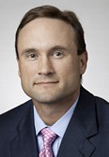© 2017 The Texas Lawbook.
By Jeff Bounds
East Texas may well lose its standing as patent lawsuit capital of the nation in a closely-watched case scheduled for argument in late March before the U.S. Supreme Court.
In TC Heartland vs. Kraft Foods, the justices are considering whether to toss out VE Holding Corporation vs. Johnson Gas Appliance, a 27-year-old ruling that has allowed patent suits to take place in any jurisdiction where the defendant has sales.
The Supreme Court generally takes cases in which appellate circuits conflict or where it perceives a problem of interpretation that a majority wishes to address.
But disagreement among appellate courts isn’t an issue in this case, if only because the Washington D.C.-based Federal Circuit Court of Appeals alone handles patent litigation appeals.
“The assumption is that the Justices think the [Federal] Circuit got it wrong” in VE Holding, said Russ Emerson, a Dallas-based partner at Haynes and Boone.

“If I had to put numbers on it, I’d say there is a two-thirds chance that the Supreme Court will kill forum shopping, and a one-third chance that the Court will not do so,” said Ted Field, a professor at South Texas College of Law Houston.
“Forum shopping” is a common and pejorative term for the process by which lawyers—in this case patent lawyers—pick legal venues where they feel they might have the greatest chance for success. And in the past 15 years, the Tyler-based Eastern District of Texas has become a very popular venue for patent and IP litigation.
In 2016, roughly 37 percent of the nation’s 4,537 new patent cases were filed in the Eastern District, according to Lex Machina.
TC Heartland could have an enormous effect across Texas, not only in the quantity, but in the character of patent enforcement. Though the terrain has somewhat leveled in recent years, the explosion of intellectual property lawsuits in the Eastern District is attributed by many to the most aggressive forms of patent litigation.
There is a polite term—“assertion entities”—for firms whose only function is to wring money out of patents they own but don’t practice. There is also a less-polite term: “patent trolls.”
Dallas Mavericks owner Mark Cuban, whose business interests span movie production to start-ups, has been outspoken on what he views as abusive patents and the companies that try to enforce them.
“They impact every company I have,” Cuban says.
William Alberts, general counsel for Rackspace, a large cloud-computing company based in the San Antonio suburb of Windcrest says the TC Heartland case “cuts to the core of the patent troll business model—litigate in a venue that has rules that discourage the quick and effective evaluation of the claims.”

“Over the past several years, we have spent millions of dollars fighting baseless patent claims,” he says. “That’s money that we could have spent creating jobs and employing engineers. It is funding that could have been invested in research and development. Instead, it was spent on lawyers.”
Which section is right?
Although the fate of IP litigation in Eastern District may be determined by TC Heartland, the specific dispute centers on whether the patent fight between the two companies should play out in Delaware—where Kraft sued in 2014—or in TC’s home state of Indiana. The crux of the dispute, however, is a broader decades-old disagreement over conflicting passages in a federal statute governing patent spats.
A 1957 Supreme Court ruling, Fourco Glass vs. Transmirra Products, limited venue to one of two possibilities mentioned in 28 USC §1400(b): Where the defendant is incorporated, or where it has a regular, established place of business and has infringed the patent(s) in question.
But in 1988, Congress tweaked the wording of a different section, 28 USC §1391(c) to include these words: “For purposes of venue under this chapter, a defendant that is a corporation shall be deemed to reside in any judicial district in which it is subject to personal jurisdiction at the time the action is commenced.”
In their VE Holding decision, the Federal Circuit reasoned that Congress had specifically reworded the statute in order to redefine venues for patent disputes, and held that the new wording should control.
The bottom line: The Federal Circuit decision opened the floodgates to forum shopping. Instead of confining patent litigation to specific districts, patent lawsuits could now be filed in any part of the country where the corporation had business.
The problem was that the wording of §1400(b) was never changed, and conflict over the discrepancy has never really been resolved.
In a “friend of the court” brief, Round Rock computing giant Dell Inc. labeled the Federal Circuit’s view an “easy to correct misinterpretation” of the patent-venue statute that Congress wrote. (Dell declined to comment beyond what the brief argues). And most experts, no matter which side of the split-hair they come down on, concede both sides have merits.

In fact, the justices in 1991 turned down an opportunity to review VE Holding directly on appeal, and have since declined to hear a number of other cases whose factual and legal questions compared to those in TC Heartland, Schechter notes.
“If the Circuit’s decision in VE Holding is so clearly wrong, why has the Supreme Court allowed it to stand for 27 years?” he says.
So, what if they do?
If the Supreme Court does redefine patent venues, most experts agree that the Eastern District of Texas could see a sharp drop-off in patent litigation. Major patent litigation would likely shift to overloaded courts in Delaware, California and New York, where many companies are incorporated. And such a shift would change not only the pace, but perhaps the nature of patent litigation.
Rather than disappear, for instance, patent trolls could respond by changing their business models.
Emerson, for instance, believes East Texas assertion entities may target retailers, especially smaller defendants who lack the money to challenge a plaintiff’s intellectual property claim through the federal Patent Trial and Appeal Board, an administrative channel.
For some defendants, it’s not worth spending money on a fight when they can get rid of the problem for $15,000 or $20,000, Emerson says. “I’ve seen settlements in the low five figures.”
On the other hand, Derek Gilliland, a Daingerfield-based partner at Nix Patterson & Roach, says a reinterpretation of the current rules won’t affect his practice much. Gilliland’s clients have included Plano-based DataTreasury Corp., which has reportedly reaped $400 million-plus in licensing fees and settlements from banks by enforcing patents related to check imaging. And in 2010, he was part of a trial team that landed a $96 million verdict for Syntrix Biosystems in a Tacoma, Wash. case.

That said, Eastern District judges know how to move patent cases efficiently, with a lesser risk of being overturned on appeal applying the law incorrectly. And Gilliland thinks it would be ashamed to ignore that expertise.
“I think patent law is one of those areas where the law benefits from a concentration of highly experienced judges handling the cases,” says Gilliland.
Craig Tyler, an Austin-based partner at Vinson & Elkins, says the expertise accumulated in building the Eastern District “rocket docket” could also be utilized across venues, allowing them to stay relevant in patent litigation.
“The judges in the Eastern District have extensive experience in patent infringement cases, and may have lighter caseloads than more urban districts,” Tyler says. As a result, he believes, the Eastern District could wind up running “multidistrict litigation panels” to hasten resolution of pre-trial issues when, say, ten or more defendants from far-flung locations face accusations of infringing the same patent.
“Now wouldn’t that be ironic?” Tyler says.
© 2017 The Texas Lawbook. Content of The Texas Lawbook is controlled and protected by specific licensing agreements with our subscribers and under federal copyright laws. Any distribution of this content without the consent of The Texas Lawbook is prohibited.
If you see any inaccuracy in any article in The Texas Lawbook, please contact us. Our goal is content that is 100% true and accurate. Thank you.
